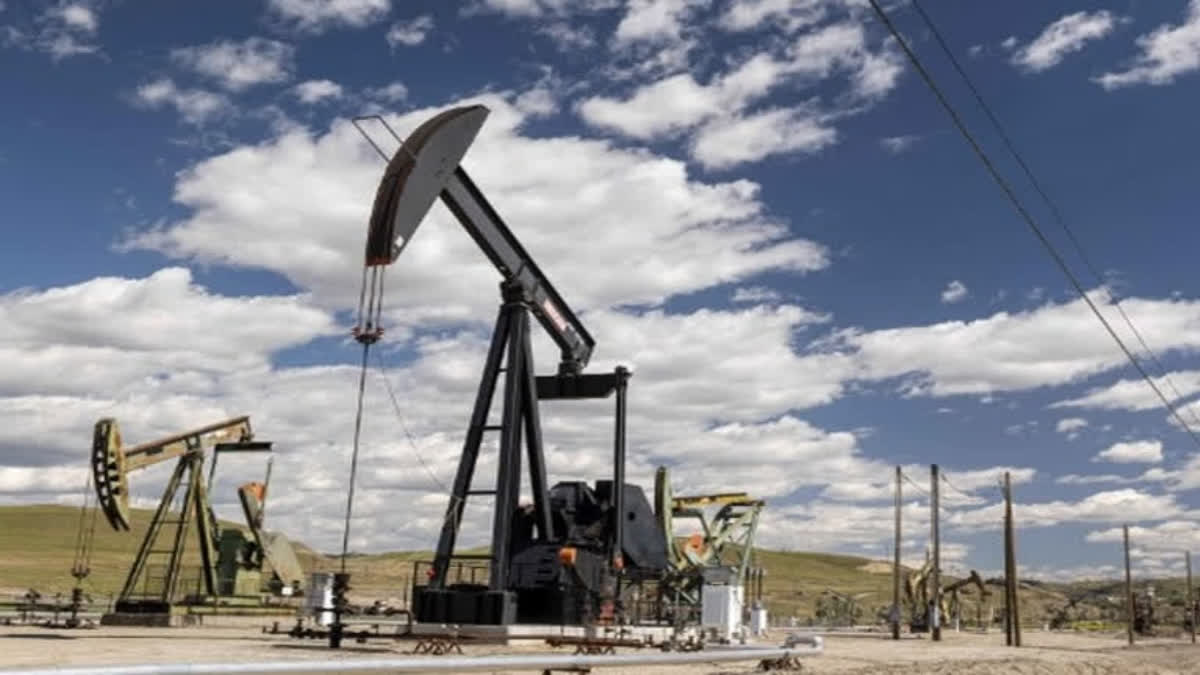New Delhi: The international price of Brent crude oil has risen sharply in the last three months, from a low of little over 72 US dollar per barrel in the June end to 95 US dollar per barrel on September 29, an increase of nearly one third in three months. The price of Indian basket of crude oil is largely aligned to Brent crude oil and any movement in the prices of Brent crude basket has a direct bearing on India’s economy, including the retail and wholesale prices in the country, as energy prices play a crucial part in the Reserve Bank’s inflation management policies as high energy prices have cascading effect on other sectors of the economy as well.
For example, the price of one barrel of crude oil under Indian basket was just little over 70 US dollar per barrel on May 3 this year, but has risen to over 94-95 US dollar per barrel at the end of this month. This sharp rise in crude oil prices has a significant impact on the Indian economy as it is coming out of the shadow of the two Covid years and adverse impact of the Ukraine war in Europe. As a result of this sharp rise in the Indian basket of crude oil prices, rating agencies and economic research agencies are revising both GDP growth and inflation projection for the country.
India Ratings and Research, a Fitch Group rating agency, has revised its projection for crude oil prices for India for the second half of the current financial year (October 2023-March 2024 period), from nearly $89 dollar per barrel to around $95 per barrel. The elevated level of crude oil prices has a direct bearing on the wholesale prices measured as the Wholesale Price Index (WPI) and retail prices measured as the Consumer Price Index (CPI).
While any rise in the international crude oil prices adversely impacts both the retail and wholesale prices, but its impact is more visible in wholesale prices energy prices have differentiated shares in these two indices. According to a calculation by the economists of India Ratings and Research, a one per cent rise in crude oil prices leads to four basis point rise in the retail price index if the entire impact is passed on to the consumers. However, under the second scenario, if only half of the impact passes through then it leads to a two basis points rise in the retail price index measured as the CPI. One basis point is one-hundredth of a percentage point.
In contrast to this, a one percent increase in the international price of crude oil leads to 10 basis points increase in India’s wholesale price index (WPI). According to the rating agency’s calculations, as a result of increase in the Indian basket of crude oil prices, wholesale prices in the third quarter of the current financial year (October-December 2023 period), will be up by 3 percent and they will be up by 3.7 percent during the fourth quarter (January-March 2024 period).
Despite the lower impact of crude oil prices in the retail prices in the country, the economists at India Ratings and Research expect that retail inflation will rise to 5.9 to 6.1 percent during October-December 2023 period and 5.3 to 5.5 percent during January to March 2024 period. In India, the Reserve Bank of India is legally mandated to keep the retail inflation under the target band set by the Union government under Section 45ZA of the RBI Act. High retail prices, which are fuelled by high food prices including the high prices of vegetables, fruits and food grain, is a cause of concern for the policy makers in the country.
In a statement sent to ETV Bharat, India Ratings and Research said that the agency’s current forecast of retail and wholesale inflation for FY24 are 5.5% and 1.0%, respectively. “However, if the average cost of Indian oil basket increases to $94.50 per barrel during October 2023-March 2024, then average retail inflation for the current financial year would increase to 5.7 percent if the hundred percent pass through takes place and it will be 5.6 percent if 50 percent impact passes through,” it said.
Impact of Russia-Ukraine war on oil marketing companies
According to the calculation of the rating agency, after the Russia-Ukraine conflict, the three major public sector oil manufacturing companies (OMCs) – Indian Oil, Bharat Petroleum and Hindustan Petroleum, incurred an aggregate loss (EBITDA) of Rs 129.1 billion in the first quarter of the last financial year (April-June 2022 period) as they did not raise the retail prices of petrol and diesel after April 2022.
Later when oil prices started correcting August 2022 onwards, they still maintained a status quo on the retail prices of petrol and diesel. The decision to not reduce the retail price of petrol and diesel helped the state owned oil marketing companies to generate profit, and the aggregate EBITDA of the three OMCs increased to Rs 491.5 billion during the same period of the current financial year.
According to the agency economists, this time the burden of increase in the crude oil prices will be shared by all – consumers, government and oil marketing companies. Impact of high crude oil prices on interest rates in India?
The agency said its analysis shows that the impact of increase in the cost of Indian oil basket is more on wholesale inflation than retail inflation, because of the higher weight of mineral oils and petroleum products in the wholesale index whereas the RBI tracks retail prices for deciding its policy rates known as repo and reverse repo rates.
The differentiated playout of retail and wholesale inflation in response to the surge in global oil prices also has policy implications. Firming up of global oil prices would mean input price pressure and/or margin pressure for several industries. “The nominal anchor for monetary policy is retail inflation which is materially not going to be impacted much by global oil prices. India Ratings and Research therefore expects the Reserve Bank of India to maintain the status quo on the policy stance and repo rate during the remainder of the current financial year,” said the agency.


